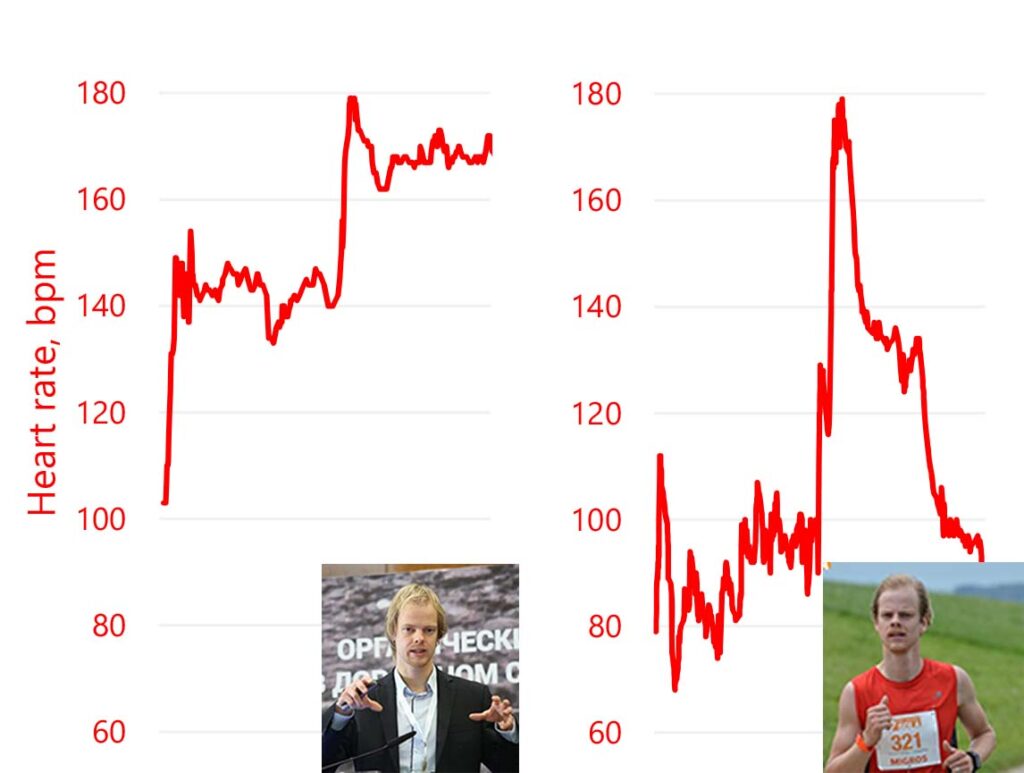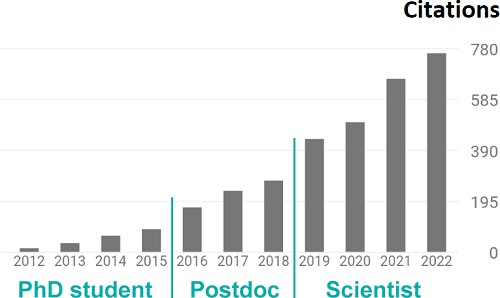
Hi, My name is Martins Zaumanis. I am a materials scientist and the author of this website.
Here are five quick facts about me:
1
I am a tenured scientist and group leader at Empa in Zurich, Switzerland. Empa is a Swiss national materials research center belonging to the ETH domain (fun fact: A. Einstein studied here). To see what I do, check out my Google Scholar profile. My h-index is 29.
2
I moved to Switzerland after finishing my PhD in Massachusetts, USA, as a Fulbright scholar. Since I am a first-generation scientist coming from a working-class family in a country few can locate on a map (Latvia), a scholarship was my only chance to pursue a PhD. I share my PhD journey in my TEDx talk.
3
Around 2017, I realized many students asked for my advice on writing research papers, giving scientific presentations, and obtaining funding. This inspired me to write the Peer Recognized book series and publish the PeerRecognized Academy online courses which help scientists develop academic career skills.
4
I have two daughters, Mona and Lisa. Yes, you guessed it, da Vinci is one of my idols in science. And my wife loves his paintings, so Mona, Lisa it is 🙂
5
If it’s a Saturday and I’m not working on Peer Recognized stuff, you’ll likely find me playing tennis, cycling, or hiking in the Swiss Alps. I also like drawing. You can see my drawings on this site and in my youtube science explainer videos.
Why am I teaching career skills?
Back in the summer of 2018, I was invited to speak at one of the world’s largest events of the road industry in Berlin. To my surprise, instead of a research presentation, I was asked to tell the audience of scientists and high-level industry professionals about ways to communicate more effectively.
My presentation titled “Engineered presentation” conveyed that just like designing a house requires knowledge of statics, public speaking requires knowing the pieces that comprise an excellent presentation.
In 20 minutes I explained basic means to capture the attention and remain in the memory of the listeners, including framing a powerful message, devising a clear presentation structure, preparing memorable slides, telling impactful stories, and dealing with stage fright.
After the presentation, multiple people came to thank me for the advice! I was surprised because nothing I mentioned was particularly advanced. It was presenting 101.
Scientists do not learn career skills
After the experience in the conference, I recalled all the mind-numbing presentations that I have witnessed at scientific conferences and realized that the presenters were probably clueless about the basic building blocks of creating a memorable presentation. They perceive presenting as a natural talent rather than a skill that can be learned.
I continued thinking about communication and remembered the many conversations with my peers who complained about the difficulties of writing a research paper. While I enjoy the writing process, for many, it is a painful experience.
But it was not always this way.
I am not a natural communicator
In the past, writing my first papers took me ages. It felt scary to write down everything that I knew (and didn’t know) for anyone to read at any time in the future. It was much easier to hide in the lab performing experiments.
The situation was even worse when I had to present the papers at conferences. I believed I was not born to be on the stage.
Once at a large conference, I experimented. Before going onto the stage, I set up a sports watch to record my heart rate. You can see that at times it reaches 180 bpm. For comparison, the other graph is from a competitive 14 km race called Sola in Zurich. The sharp spike is a section of an uphill run with a height difference of 150 m. It’s amazing what stress can do!

Communication is not a talent, it’s a skill
As you can see, I do not have any particular talent for communication, but that is precisely why you should take my advice. For someone who has charisma, it might seem easy to get on the stage and amaze everyone. For someone whose favorite subject in high school was literature, writing papers might be a relaxing afternoon. However, for most researchers and myself, it takes effort and skills to communicate effectively.
What saved my career was the early realization that without proper writing and communication skills, I would never become a successful scientist. So over the last ten years, I have acquired know-how that no one teaches in graduate school:
- I attended courses on public speaking and analyzed great presenters in action. Before my TEDx talk, I even had one-on-one lessons from a theater director.
- To master writing impactful papers and research proposals, I discussed scientific writing with editors of major academic journals and studied advice from people who have published in the journal Nature.
- I participated in many courses on topics ranging from academic communication, to writing, to science management.
- I interviewed superstar professors at some of the best universities in the world and participated in mock debating sessions.
- I even enrolled in a business incubator to understand what it takes to attract research funding.
- I read books on anything that I could find, including human psychology, presenting, visualization, marketing, business, history of science, and many more… By the way, you can find most of the books I have read in my GoodReads account.
After years of refining my skills, I can see the work has paid off. Once a shy speaker, I have learned what it takes to confidently present my work, and now I receive new LinkedIn invitations after every conference. This expanding network of peers has allowed me to author research projects amounting to 9.8 million USD.

Writing research papers has become one of my favorite tasks; in 2018 alone, I wrote six journal papers and co-authored another three. As someone who graduated from a university that was not even included in any of the university rankings, I still feel butterflies in my stomach every time I see a new citation of my papers.
My journey which started in a working-class family in a country that rarely anyone has heard of eventually led me to become employed in one of the best research institutions in the world. Every day I enjoy being able to do a job I am passionate about.
Learn the skills
The experiences that started in Berlin eventually prompted me to write the “Peer Recognized” books series and create the PeerRecognized.com Academy. These resources hold everything that I have learned about the academic career skills that any scientist should possess.
You will not have to spend years, like I did to learn about vital academic career skills. Everything you need to know to communicate your research results effectively is summarized in my books and courses.
Too many great ideas are lost because of their authors’ inability to explain them adequately. If no one knows about your research – it does not exist. Learning how to become peer-recognized will give you a chance of making a dent in science.
Want more citations?
I have created a newsletter where I share tips with you on how to make it in academia. You hear my advice for attracting citations, polishing CV, forming research partnerships, getting research ideas, and more. Join the thousands of Peer Recognized newsletter subscribers.




